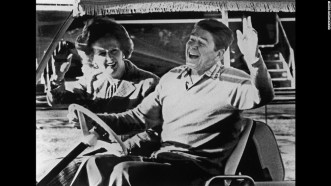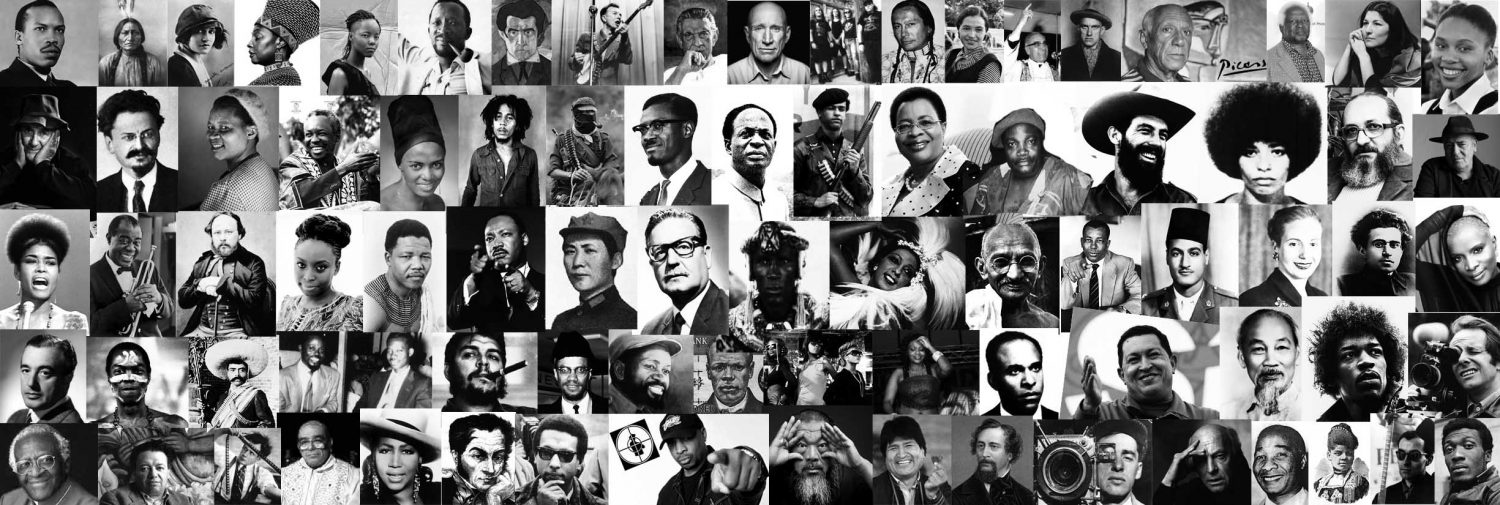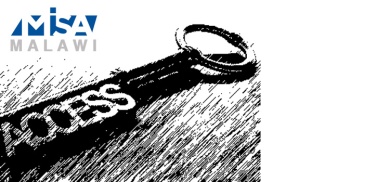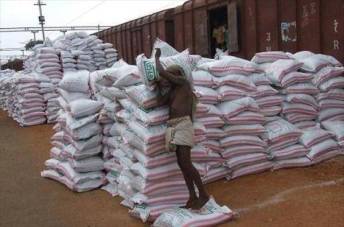Organisation of society
In Malawi we see an urgent situation: widespread hunger, poverty worsening all the time, climate change affecting all, combined with an ever lower (worldwide) demand for its primary export: tobacco. One would think this would be experienced as urgent by the people responsible for steering the country into more conducive waters. However, this does not appear to be the case.
There is only one organisation with both the power and the authority to do this and that is government. But our government organisation is totally conservative, which means it conserves what is there, even if this is not what the country needs. The government machine is slow, slow, slow in reacting to anything happening in the world. So slow it is decades behind.
When the cold war ended around 1990, the whole world changed. The western world had,  anticipating the collapse of the communist bloc under the Soviet Union and seeing capitalist changes in China, already converted to neo-liberalism, mainly promoted by Thatcher in the UK and Reagan in the USA. These two countries controlled (and control) most of the financial world, so they have the power to implement worldwide.
anticipating the collapse of the communist bloc under the Soviet Union and seeing capitalist changes in China, already converted to neo-liberalism, mainly promoted by Thatcher in the UK and Reagan in the USA. These two countries controlled (and control) most of the financial world, so they have the power to implement worldwide.
As a consequence of the end of the cold war, Kamuzu Banda lost the support from the capitalist bloc and he needed to go. Kamuzu Banda was replaced by a (nominally) democratic system, but the whole government machinery remained the same. So the  conservative approach stayed and the current democratic government still functions largely the same as under Kamuzu Banda, even though the international situation has changed drastically. Because of the prevailing neo-liberal economic climate, the price of primary commodities like tobacco has gone down a lot since the 1970s. It is impossible these days to base an economy on that type of exports. Our economy has been supported with heavy donor support until about four years ago. But now donors are sick and tired of the same inefficient and corrupt practices that they have shored up for so long since 1964. Under the cold war they were willing to look the other way for geo-strategic reasons. But since the cold war ended they are less and less willing to finance a corrupt elite, that does not facilitate their neo liberal economics.
conservative approach stayed and the current democratic government still functions largely the same as under Kamuzu Banda, even though the international situation has changed drastically. Because of the prevailing neo-liberal economic climate, the price of primary commodities like tobacco has gone down a lot since the 1970s. It is impossible these days to base an economy on that type of exports. Our economy has been supported with heavy donor support until about four years ago. But now donors are sick and tired of the same inefficient and corrupt practices that they have shored up for so long since 1964. Under the cold war they were willing to look the other way for geo-strategic reasons. But since the cold war ended they are less and less willing to finance a corrupt elite, that does not facilitate their neo liberal economics.
 What we see is a democracy lacking in democracy: the separation of powers is non-existent, and civil society is weak. The judiciary is dependent on the head of the executive: the president for appointing is leader, and the quality of the education of judges and magistrates leaves room for improvement. Jurisprudence is not kept. This makes the judiciary very weak compared to the executive.
What we see is a democracy lacking in democracy: the separation of powers is non-existent, and civil society is weak. The judiciary is dependent on the head of the executive: the president for appointing is leader, and the quality of the education of judges and magistrates leaves room for improvement. Jurisprudence is not kept. This makes the judiciary very weak compared to the executive.
The legislative is weak and corrupt; MPs are mostly concerned with their own individual well being in the form of allowances, loans, the CDF, and such. The quality of their insights is weak and many tend to be absent from the meetings anyway. They do not provide the counter balance needed to check the executive.
This combination results in a very weak rule of law. The rule of law is there to protect weaker institutions and people from the powerful in our case the executive. This means the citizens have a hard time exercising their rights. But it also means that companies have a hard time exercising their rights. This scares off the much needed Direct Foreign Investment, and even Malawian investors often opt for investing abroad. This stops the private sector from developing and creating a vibrant private economy. At the same time it also stops the private sector from becoming big, rich and powerful. This plays into the hands of the current ruling class, which keeps everything (wealth as well as power) into its own hands, and away from others (private sector, judiciary, legislative, population).
Who are this ruling class?
This is not so easy to pin down on persons, but broadly speaking the power in Malawi is concentrated in the executive branch of government. But here, like in the legislative, the expertise of the politicians is not always optimal. ON the other hand the top civil servants are all highly educated, experienced and intelligent people who have been at their posts much longer than the politicians. They know their field and their organisations very thoroughly. For a civil servant, a politician is a passing incident. A politician needs to be very strong to overrule his subordinates, and we see that this does not happen often.
Of course a few politicians have succeeded but by and large the balance of power leans towards the people with experience in the job: the civil service.
Conserving rights means doing things the way they have been done for a long time, and keeping at defending these rights and options. WE see a huge slow down in the pace of the Civil Service Reforms that are headed by the Vice President Saulos Chilima. He started out as hyper active, but he has had to adjust to the speed of government, which can successfully be compared to that of a moderately fast snail. The vested interests in the Civil Service and related institutions are powerful, and without the full backing of a strong President, the reforms are going to be cosmetic rather than effective.



 When the Soviet Union unraveled in 1989 (or around that time) Many in the USA felt they had won the cold war. Francis Fukuyama even wrote a book called the End of History, in which he claimed that there would be no more big developments in world history: the US model of capitalist democracy would rule the world from then on till eternity. This view was obviously shattered with a Big Bang
When the Soviet Union unraveled in 1989 (or around that time) Many in the USA felt they had won the cold war. Francis Fukuyama even wrote a book called the End of History, in which he claimed that there would be no more big developments in world history: the US model of capitalist democracy would rule the world from then on till eternity. This view was obviously shattered with a Big Bang  when the Twin Towers came down in the famous Al-Qaeda attack on September 11, 2001. From then on it looked like the major opposition to neo-liberal capitalism in the world came from Islamist terrorism.
when the Twin Towers came down in the famous Al-Qaeda attack on September 11, 2001. From then on it looked like the major opposition to neo-liberal capitalism in the world came from Islamist terrorism. There is some resistance to this government policy: the media (most explicitly the newspapers) and some of the business world are promoting a more modern type of government, with rule of law, and a favorable investment climate. This would mean that the ruling elite needs to give in some of their personal power, and in the short term some money. Rule of law means no-one is above the law, not even the President. It means the ATI bill, limits to the Presidential powers, it means a lawsuit against the State has just as good a chance to be won as against anybody else. It means the judicial system adheres to jurisprudence. It means the legislative is not pushing
There is some resistance to this government policy: the media (most explicitly the newspapers) and some of the business world are promoting a more modern type of government, with rule of law, and a favorable investment climate. This would mean that the ruling elite needs to give in some of their personal power, and in the short term some money. Rule of law means no-one is above the law, not even the President. It means the ATI bill, limits to the Presidential powers, it means a lawsuit against the State has just as good a chance to be won as against anybody else. It means the judicial system adheres to jurisprudence. It means the legislative is not pushing for more perks (allowances, subsidized loans, Community Development Funds etc) but making laws that facilitate development. They are advocating for a more USA style economy. The same are the US doing themselves: they subsidize Escom, on the condition that it privatizes: more capitalism, less State influence. International Tobacco Buyers are also pushing for more freedom: they have gotten the opportunity to practice contract farming and the Para-Statal auctions are strongly limited in their influence. Again more freedom for capitalist companies and less direct State intervention. Hopefully it will also limit corruption, which eats into the growers’ income in a big way.
for more perks (allowances, subsidized loans, Community Development Funds etc) but making laws that facilitate development. They are advocating for a more USA style economy. The same are the US doing themselves: they subsidize Escom, on the condition that it privatizes: more capitalism, less State influence. International Tobacco Buyers are also pushing for more freedom: they have gotten the opportunity to practice contract farming and the Para-Statal auctions are strongly limited in their influence. Again more freedom for capitalist companies and less direct State intervention. Hopefully it will also limit corruption, which eats into the growers’ income in a big way. An alternative way to liberalism that is getting more in vogue over the past few years is the European model of social democracy. It had been overruled by the Thatcher-Reagan approach of the 1980s. Even Blair had removed it from the (social democrat) UK Labour Party. But currently they have an explicitly social democrat leader: Jeremy Corbine. And in the US the social democrat (or democratic socialist,
An alternative way to liberalism that is getting more in vogue over the past few years is the European model of social democracy. It had been overruled by the Thatcher-Reagan approach of the 1980s. Even Blair had removed it from the (social democrat) UK Labour Party. But currently they have an explicitly social democrat leader: Jeremy Corbine. And in the US the social democrat (or democratic socialist, as he calls himself) Bernie Sanders has come much further than any social democrat before him, with a serious bid for the Democratic Nomination. And he is pushing candidate Hillary Clinton in a social democrat direction, for him to endorse her as democratic candidate (which means he will advise his supporters to vote for Hillary Clinton only if she adopts a number of his policies).
as he calls himself) Bernie Sanders has come much further than any social democrat before him, with a serious bid for the Democratic Nomination. And he is pushing candidate Hillary Clinton in a social democrat direction, for him to endorse her as democratic candidate (which means he will advise his supporters to vote for Hillary Clinton only if she adopts a number of his policies).

 multiply. He spoke of the new state-of-the-art cancer treatment center, where cost overruns were in the range of 400%. This shows that our government is crippled in implementation: this way It can only do 20% of what its money is worth because of the inefficiencies and corruption. This makes a successful social democrat State a long shot.
multiply. He spoke of the new state-of-the-art cancer treatment center, where cost overruns were in the range of 400%. This shows that our government is crippled in implementation: this way It can only do 20% of what its money is worth because of the inefficiencies and corruption. This makes a successful social democrat State a long shot.

 anticipating the collapse of the communist bloc under the Soviet Union and seeing capitalist changes in China, already converted to neo-liberalism, mainly promoted by Thatcher in the UK and Reagan in the USA. These two countries controlled (and control) most of the financial world, so they have the power to implement worldwide.
anticipating the collapse of the communist bloc under the Soviet Union and seeing capitalist changes in China, already converted to neo-liberalism, mainly promoted by Thatcher in the UK and Reagan in the USA. These two countries controlled (and control) most of the financial world, so they have the power to implement worldwide. conservative approach stayed and the current democratic government still functions largely the same as under Kamuzu Banda, even though the international situation has changed drastically. Because of the prevailing neo-liberal economic climate, the price of primary commodities like tobacco has gone down a lot since the 1970s. It is impossible these days to base an economy on that type of exports. Our economy has been supported with heavy donor support until about four years ago. But now donors are sick and tired of the same inefficient and corrupt practices that they have shored up for so long since 1964. Under the cold war they were willing to look the other way for geo-strategic reasons. But since the cold war ended they are less and less willing to finance a corrupt elite, that does not facilitate their neo liberal economics.
conservative approach stayed and the current democratic government still functions largely the same as under Kamuzu Banda, even though the international situation has changed drastically. Because of the prevailing neo-liberal economic climate, the price of primary commodities like tobacco has gone down a lot since the 1970s. It is impossible these days to base an economy on that type of exports. Our economy has been supported with heavy donor support until about four years ago. But now donors are sick and tired of the same inefficient and corrupt practices that they have shored up for so long since 1964. Under the cold war they were willing to look the other way for geo-strategic reasons. But since the cold war ended they are less and less willing to finance a corrupt elite, that does not facilitate their neo liberal economics. What we see is a democracy lacking in democracy: the separation of powers is non-existent, and civil society is weak. The judiciary is dependent on the head of the executive: the president for appointing is leader, and the quality of the education of judges and magistrates leaves room for improvement. Jurisprudence is not kept. This makes the judiciary very weak compared to the executive.
What we see is a democracy lacking in democracy: the separation of powers is non-existent, and civil society is weak. The judiciary is dependent on the head of the executive: the president for appointing is leader, and the quality of the education of judges and magistrates leaves room for improvement. Jurisprudence is not kept. This makes the judiciary very weak compared to the executive.